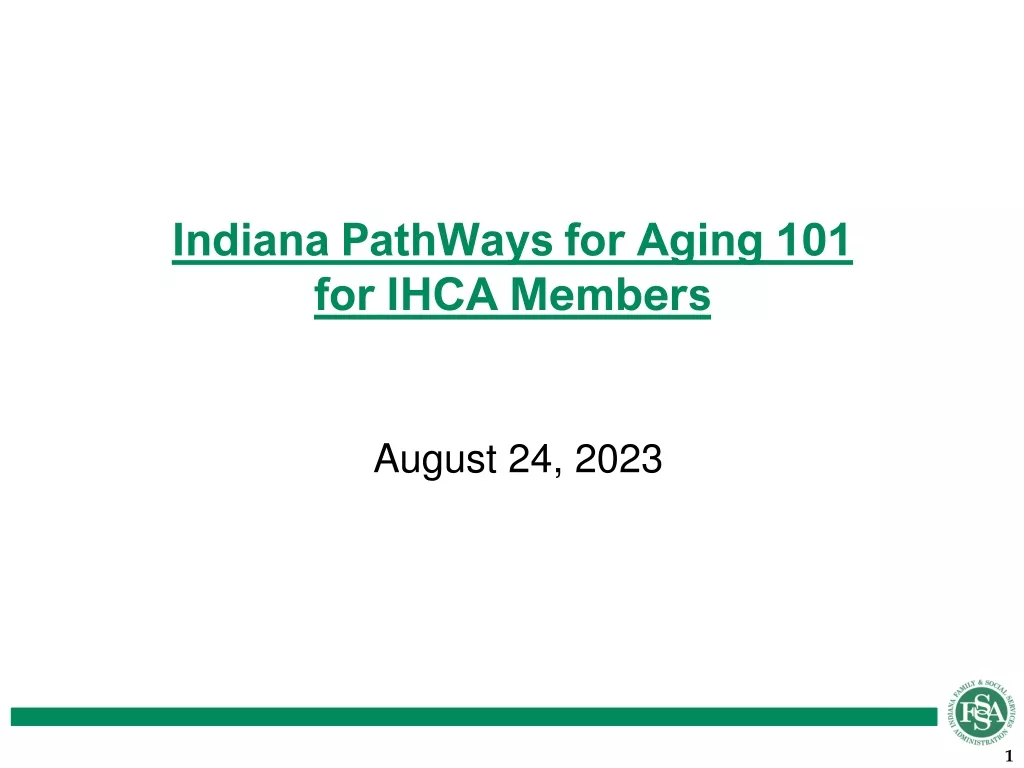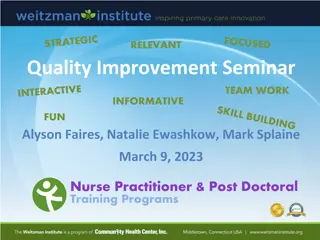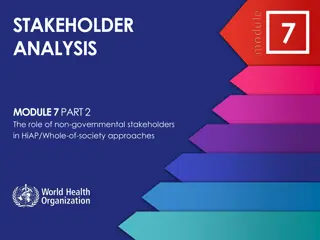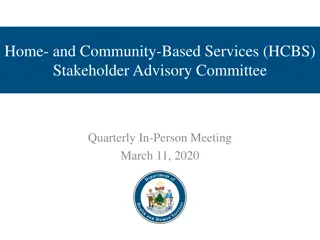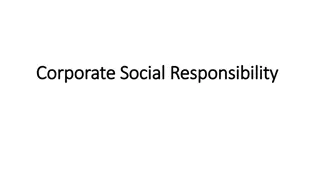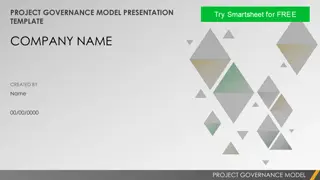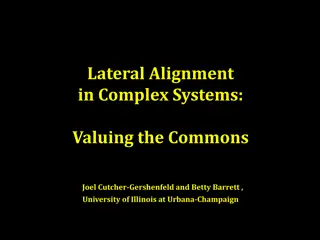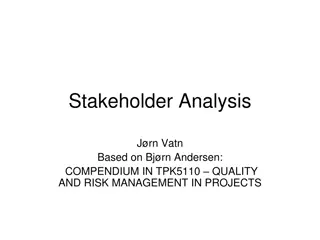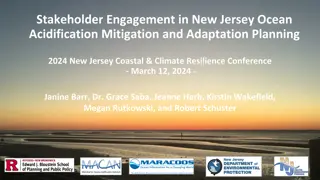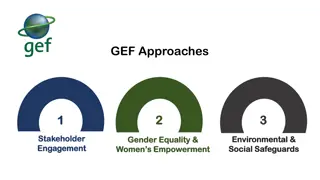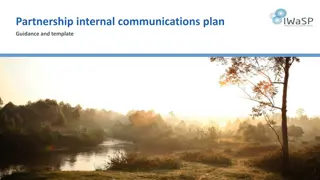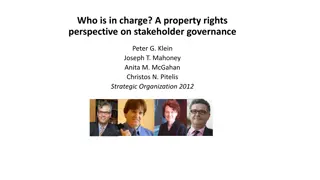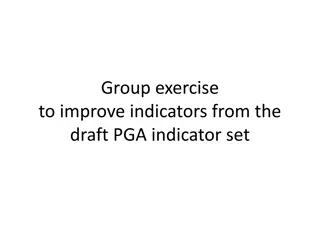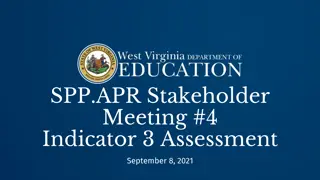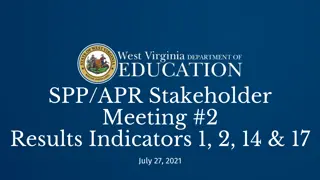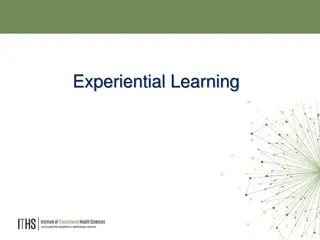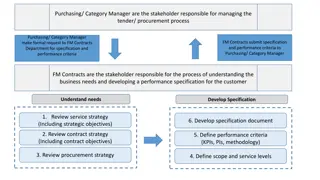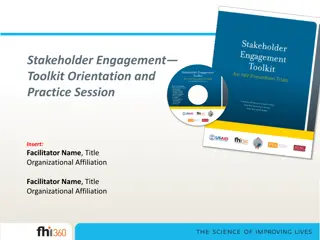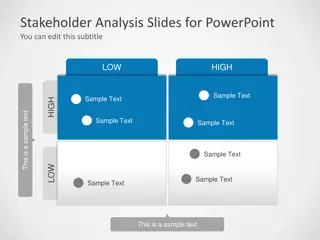Indiana PathWays for Aging 101 for IHCA Members
Indiana Pathways for Aging is a stakeholder-driven initiative aiming to reform long-term services and supports in Indiana. Key topics covered include program goals, enrollment processes, future stakeholder engagement, and the transition to person-centered care. The Pathways Codesign Workgroup plays
0 views • 31 slides
Evolution of Mathematical Theories and Proof Systems
Development of mathematical theories such as model theory, proof theory, set theory, recursion theory, and computational complexity is discussed, starting from historical perspectives with Dedekind and Peano to Godel's theorems, recursion theory's golden age in the 1930s, and advancements in proof t
1 views • 29 slides
Psychological Theories of Criminality: Understanding the Roots
Psychological theories of criminality delve into the association between intelligence, personality, learning, and criminal behavior. Major theories include Psychodynamic Theory by Freud, Behavioral Theory by Bandura, and Cognitive Theory by Kohlberg. These theories explore how unconscious mental pro
1 views • 20 slides
Quality Improvement Strategies for Stakeholder Engagement
Dive into the world of quality improvement with a focus on stakeholder engagement at the upcoming seminar led by Alyson Faires, Natalie Ewashkow, and Mark Splaine. Learn about effective conflict management, stakeholder considerations, and more through interactive sessions and insightful discussions.
2 views • 28 slides
Understanding Stakeholder Analysis in Health in All Policies (HiAP) Approaches
Stakeholder analysis in HiAP involves systematically gathering information to categorize stakeholders' importance, anticipate their influence, and develop strategies for involving them in policy implementation. Learn the purpose, process, and benefits of conducting a stakeholder analysis in this mod
2 views • 7 slides
Understanding the Theory of Firms: Neoclassical vs. Modern Approaches
The theory of firms is explored through the Neoclassical and Modern perspectives. Neoclassical theory focuses on profit maximization, while Modern theory delves into managerial, principal-agent, and transaction cost theories. The discussion covers criticisms of Neoclassical theory and the essential
1 views • 79 slides
Theories of Causation in Psychological and Social Sciences
Overview of theories of causation categorized into psychological, social psychological, and sociological perspectives. Psychological theories focus on instinctive, biological, and psychological qualities of abusers, including Attachment Theory, Psychodynamic Theory, Social Learning Theory, and Situa
0 views • 15 slides
Understanding Political Theory through a Contextual Approach
Exploring G.H. Sabine's perspective on political theory through a contextual approach, emphasizing the importance of historical context and societal influences. Sabine argues that while political theory evolves with its contemporary politics, it should be analyzed within its specific time and social
0 views • 9 slides
Evolution of Light Theory: From Wave Theory to Quantum Theory
At the turn of the century, the discovery of the photoelectric effect challenged the wave theory of light, leading to the development of the quantum theory by Max Planck and Albert Einstein. This new theory introduced the concept of discrete energy units known as quanta, bridging the gap between wav
1 views • 62 slides
HCBS Stakeholder Advisory Committee Quarterly Meeting Overview
The Home- and Community-Based Services (HCBS) Stakeholder Advisory Committee held a quarterly in-person meeting on March 11, 2020. The agenda included discussions on the Statewide Transition Plan, Individual Experience Assessment, workplan requests, and stakeholder engagement. Pre-meeting activities
0 views • 27 slides
Understanding Corporate Social Responsibility and Stakeholder Theory
Carroll's Four Faces of CSR model defines the economic, legal, ethical, and discretionary responsibilities of businesses towards society. The evolution of CSR concepts, stakeholder theory, and the importance of engaging with various stakeholders are discussed, emphasizing the intrinsic value of stak
0 views • 6 slides
Comprehensive Overview of Project Governance Model with Stakeholder Engagement
Explore the intricacies of a robust project governance model involving key elements such as risk management, system management, stakeholder engagement, and more. Learn about the roles of different committees, the importance of effective communication, and the strategies for managing project teams ef
0 views • 10 slides
Dp-branes, NS5-branes, U-duality, and M-Theory Overview
Overview of Dp-branes, NS5-branes, and U-duality derived from nonabelian (2,0) theory with Lie 3-algebra. Introduction to M-theory, including M2-branes and M5-branes in the strong coupling limit. Discussion on BLG theory, Lorentzian Lie 3-algebra, and the ABJM theory for M2-branes.
1 views • 32 slides
Stakeholder Alignment and Commons Valuation in Complex Systems
Explore the challenges and strategies involved in stakeholder alignment and valuing the commons in complex systems through insights from various sources. Key themes include lateral stakeholder alignment, shared visions, leadership approaches, and building trust for effective partnerships.
1 views • 11 slides
Regulator of Social Housing Stakeholder Survey Results 2022-2023: Key Findings and Insights
The Regulator of Social Housing conducted a stakeholder survey in 2022-2023, gathering insights from registered providers and other stakeholders. Key findings indicate positive perceptions of the regulatory framework, delivery practices, and future plans. Stakeholders appreciate the usefulness of RS
1 views • 19 slides
Understanding Time-Independent Perturbation Theory in Quantum Mechanics
Perturbation theory is a powerful tool in solving complex physical and mathematical problems approximately by adjusting solutions from a related problem with known solutions. This theory allows for more accurate approximate solutions by treating the difference as a small perturbation. An example inv
0 views • 19 slides
Ethical Theories: Divine Command vs. Virtue Theory Explained
Divine Command Theory asserts that morality is derived from God's commands, contrasting with Virtue Theory which focuses on developing moral virtues to achieve human flourishing and excellence. Divine Command Theory relies on religious texts, while Virtue Theory emphasizes the cultivation of virtues
0 views • 24 slides
Stakeholder Analysis in Project Management: Understanding and Influence
Stakeholder analysis is crucial in project management as it helps in understanding the interests and expectations of individuals and organizations involved in a project. By evaluating stakeholder expectations throughout the project lifecycle, decisions can be made to ensure stakeholder acceptance an
1 views • 24 slides
Understanding Fermi Liquid Theory in Interacting Fermion Systems
Fermi liquid theory, also known as Landau-Fermi liquid theory, is a theoretical model that describes the normal state of metals at low temperatures. Introduced by Landau and further developed by Abrikosov and Khalatnikov, this theory explains the similarities and differences between interacting ferm
0 views • 23 slides
Stakeholder Engagement in New Jersey Ocean Acidification Mitigation and Adaptation Planning
This content discusses stakeholder engagement in New Jersey's efforts to mitigate and adapt to ocean acidification, focusing on the economic, social, and environmental impacts on coastal communities. The process, methods, goals, and key takeaways of stakeholder engagement are outlined, emphasizing t
0 views • 12 slides
GenComm Spring H2 Webinar Series on Stakeholder Engagement
The GenComm Spring Series of H2 webinars focuses on optimizing SMART H2 for a successful hydrogen Europe. Stakeholder engagement is highlighted as a key aspect to drive the energy transition and achieve net zero emissions by 2050. Explore insights from industry experts on enhancing stakeholder engag
0 views • 17 slides
Enhancing Key Worker Provision for Dementia Care in London
London Dementia Clinical Network aims to improve support for people living with dementia through consistent key worker provision. The project involves stakeholder feedback, mapping existing services, developing an enhanced pathway, and identifying pilot sites to embed the improved provision. Progres
0 views • 4 slides
Effective Stakeholder Engagement in NSW Public Service Commission
This resource provides valuable tools and principles for stakeholder engagement within the NSW Public Service Commission. It covers stakeholder identification, understanding, and engagement processes, emphasizing the importance of collaboration, transparency, and respect. By following the outlined p
0 views • 12 slides
GEF Approach to Stakeholder Engagement
GEF's evolving approach to stakeholder engagement emphasizes full disclosure, consultation, and participation of major groups and local communities throughout project cycles. Policies and guidelines focus on promoting inclusive and meaningful stakeholder participation in support of the global enviro
0 views • 27 slides
Computational Learning Theory: An Overview
Computational Learning Theory explores inductive learning algorithms that generate hypotheses from training sets, emphasizing the uncertainty of generalization. The theory introduces probabilities to measure correctness and certainty, addressing challenges in learning hidden concepts. Through exampl
0 views • 43 slides
Automata Theory and Theory of Computation Overview
This course overview covers concepts in automata theory and theory of computation, including formal language classes, grammars, recognizers, theorems in automata theory, decidability, and intractability of computational problems. The Chomsky hierarchy, interplay between computing components, modern-
0 views • 42 slides
Stakeholder Engagement in Nuclear Emergency Response
The 5th NERIS Workshop in Roskilde addressed key challenges in the preparedness, response, and recovery phases of nuclear or radiological emergencies. Stakeholders engaged in scenario-based discussions to test decision-making processes, focusing on transitioning to long-term recovery and reducing un
0 views • 18 slides
Theories of Interest in Microeconomics II
Explore various theories of interest in economics, including the Classical Theory, Liquidity Preference Theory by Keynes, Productivity Theory, Abstinence Theory, Time-Preference Theory, Fisher's Time Preference Theory, and the Loanable Fund Theory. These theories offer different perspectives on the
0 views • 6 slides
Partnership Internal Communications Plan & Stakeholder Analysis
Developing an effective internal communications plan for a partnership involves drawing insights from stakeholder analysis, drafting, validating, and implementing the plan. Engaging with internal stakeholders, understanding their awareness, engagement levels, and expectations, and prioritizing commu
1 views • 6 slides
Exploring the Evolution of Atomic Theory
Delve into the historical journey of atomic theory starting from Democritus and Aristotle's views to modern advancements proving some aspects of Dalton's theory incorrect. Learn about key laws and theories such as the Particle Theory of Matter, Dalton's Atomic Theory, and JJ Thomson's discoveries, s
0 views • 30 slides
Rethinking Firm Governance Through Property Rights and Stakeholder Theory
Challenging the traditional shareholder-centric view, this study explores how property rights theory and stakeholder theory can offer a more comprehensive perspective on firm governance. It delves into the complexities of value creation, contractual relationships, and diverse stakeholder interests,
0 views • 10 slides
Enhancing Stakeholder Engagement Through Group Exercise Metrics
Explore innovative group exercise indicators for improving stakeholder awareness, knowledge, and participation in service delivery and redress mechanisms. Assessing staff training, record-keeping quality, information production efficiency, and stakeholder awareness levels can drive impactful changes
0 views • 15 slides
Enhancing Stakeholder Engagement for SPP/APR Implementation
The stakeholder meeting discussed new requirements for involving stakeholders in the State Performance Plan/Annual Performance Report (SPP/APR) package starting in February 2022. These requirements aim to widen stakeholder participation, seek diverse advice, and document the engagement process. The
0 views • 17 slides
Stakeholder Engagement in SPP/APR Meeting Results and Indicators
Stakeholder Meeting #2 discussed indicators 1, 2, 14, and 17 on July 27, 2021. The meeting highlighted new requirements for stakeholder involvement in the State Performance Plan/Annual Performance Report (SPP/APR) starting February 1, 2022. It emphasized expanding and documenting stakeholder engagem
0 views • 23 slides
Conducting Stakeholder Interviews for School Quality Assessment
Stakeholder interviews are a crucial part of the school quality assessment process. The CSSI team conducts interviews with various stakeholders to gain insights into different aspects of the school environment. Interview protocols, norms, and data collection procedures are detailed to ensure a thoro
1 views • 6 slides
Experiential Learning and Stakeholder Engagement Program
This program focuses on experiential learning opportunities, including stakeholder assessment and engagement strategies for successful implementation of research findings. Trainees will learn to identify stakeholders, understand their impact, prioritize engagement, and develop strategies. The progra
0 views • 11 slides
Stakeholder Management and Contract Administration in Procurement Processes
Stakeholder management is crucial in procurement processes to ensure alignment with business needs and objectives. Purchasing/Category Managers and FM Contracts play key roles in understanding requirements, developing specifications, and managing contracts post-tender. By following a structured appr
0 views • 12 slides
Macromechanical Analysis of Lamina and Tsai-Hill Failure Theory Overview
The Tsai-Hill failure theory is based on the strengths of a unidirectional lamina, incorporating longitudinal and transverse tensile and compressive strengths, as well as in-plane shear strength. This theory, derived from the distortion energy theory, provides criteria for determining lamina failure
0 views • 15 slides
Comprehensive Stakeholder Engagement Toolkit Orientation and Practice Session
Engage in a detailed session covering the key features of a Stakeholder Engagement Toolkit, including planning for socio-cultural factors, assessing stakeholder knowledge, and facilitating group discussions. Learn how the Toolkit provides guidance for efficient stakeholder engagement, documentation
0 views • 33 slides
Effective Stakeholder Analysis Presentation Slides for PowerPoint
Discover professionally designed stakeholder analysis slides for your PowerPoint presentation. These slides cover stakeholder influence, power, needs, and commitment levels. Easily customizable to meet your specific requirements and enhance your stakeholder engagement strategies.
1 views • 8 slides
